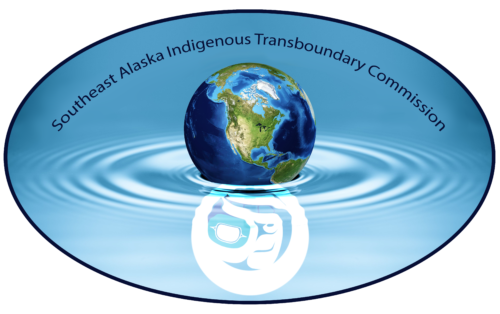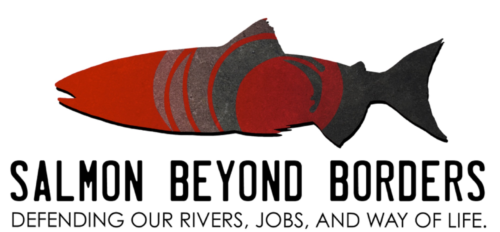
Alaska Fishing Groups Respond To B.C. Mining Projects
The following is courtesy of Salmon Beyond Borders, Rivers Without Borders and Southeast Alaska
Indigenous Transboundary Commission:



BRITISH COLUMBIA APPROVES SEABRIDGE GOLD’S REQUEST FOR
EXTENSION TO KSM MINING PROJECT ENVIRONMENTAL CERTIFICATE
Alaskans: More B.C. Government Deference to Industry
(JUNEAU) Alaskans are again expressing concerns that a decision by the British Columbia (B.C.) government demonstrates the province has a disturbing pattern of deference to its mining industry. On November 16, B.C. approved a request from Kerr-Sulphurets-Mitchell (KSM) project proponent Seabridge Gold to extend the project’s Environmental Assessment Certificate for two years due to alleged delays and challenges caused by COVID-19.
“While this was a troubling move by Seabridge to exploit the pandemic, what’s more concerning is that B.C. let them get away with it,” said Chris Zimmer of Rivers Without Borders. “B.C. has a clear and disturbing history of deference to the mining industry. For example, the province’s actions, or inactions, in regards to the New Prosperity project, Tulsequah Chief, and Mount Polley all showed an unwillingness to properly apply environmental laws and mining regulations, but a clear willingness to give the industry every break possible.”
B.C. issued an Environmental Certificate for KSM on July 29, 2014, which required Seabridge to substantially start the project by July 29, 2019. The law allows for a one-time extension, which was granted on March 21, 2019, extending the deadline to July 29, 2024. In March 2020 Seabridge petitioned for a variance to allow a second extension due to alleged complications from the COVID pandemic. B.C. granted the request on November 16, 2021 and has extended the deadline until July 29, 2026.
“This is what it looks like when the wolves run the hen house,” said Frederick Olsen, Jr., of the Southeast Alaska Indigenous Transboundary Commission. “B.C. went against its own rule of allowing one construction extension per project. Seabridge Gold cynically used COVID-19 to buy itself more time to find the billions of dollars needed to build its massive mine. The smokescreen worked. Of course, it helps when the regulators cheerlead for you.”
“The substantially started law has no definition and is up to agency discretion, which seems to always go in industry’s favor. In January 2015 B.C. granted substantially started status to the Tulsequah Chief mine, despite the Supreme Court of Canada’s ruling in August 2014 that the information used by B.C. was ‘one-sided’ and the factual record was ‘modest.’ I can find no example of B.C. denying substantially started status to a mining project,” said Zimmer.
Seabridge claimed COVID-19 created capital market disruptions and a depressed copper market, imposed safety requirements that limited field operations, induced a slowdown of permitting efforts and could create future problems.
“As we and many others who would be directly impacted by this project pointed out in our comments to B.C. opposing the extension, Seabridge is using the pandemic to explain away its failure to attract major investment or partners. Despite claims of problems caused by COVID, since January 2020 Seabridge has issued numerous promotional press releases highlighting drilling programs, stock offerings and deals with other companies and has continued to conduct business as usual during the pandemic,” said Zimmer.
This latest controversy comes only a few months after an open letter to 8 Alaska legislators from Michael Goehring, President and CEO of the Mining Assoc. of B.C. that was published in SitNews on July 18. The letter was in response to an official May 7 letter from the legislators to B.C. Premier John Horgan expressing concerns about “potential impacts to our transboundary rivers from abandoned, operating, and future large-scale mining projects in British Columbia”. Goehring’s letter had the usual all is well platitudes that are nothing new to Alaskans. But, what was most concerning was the fact that there has been no official B.C. response to the Alaska legislators’ letter, and apparently Goehring was somehow designated to respond.
“Mr. Goehring’s letter had the complete opposite of its apparent intent. He did not assuage the Legislators’, or thousands of their constituent’s concerns, about the potential and ongoing impacts to some of the last remaining wild salmon rivers on the planet from massive mining projects in B.C.; rather, he intensified those concerns and confirmed what many of us already realize…that little or no daylight separates the B.C. mining industry from the B.C. government. Goehring, who is a former PR executive, writes about climate change, clean water, clean energy transitions and Indigenous rights — while in actuality, B.C., who has yet to respond to Alaskan’s concerns, doubles down on the industrialization of immense portions of shared wild salmon rivers, imperiling biodiverse ecosystems and continuing to use a political border as an excuse to ignore the rights of sovereign Indigenous nations and rural communities downstream,” said Jill Weitz of Salmon Beyond Borders.
KSM is a massive open pit/underground mine proposed just 20 miles from the Alaska border and Misty Fjords National Monument, in the headwaters of the Unuk and Nass river systems. The Unuk is an important producer of king salmon and eulachon in Southeast Alaska, with the king salmon stock officially listed as a “stock of concern” by Alaska Department of Fish & Game. The Nass (3rd largest river in B.C.) and its tributary the Bell Irving, are important contributors to wild salmon fisheries in both B.C. and Alaska.



